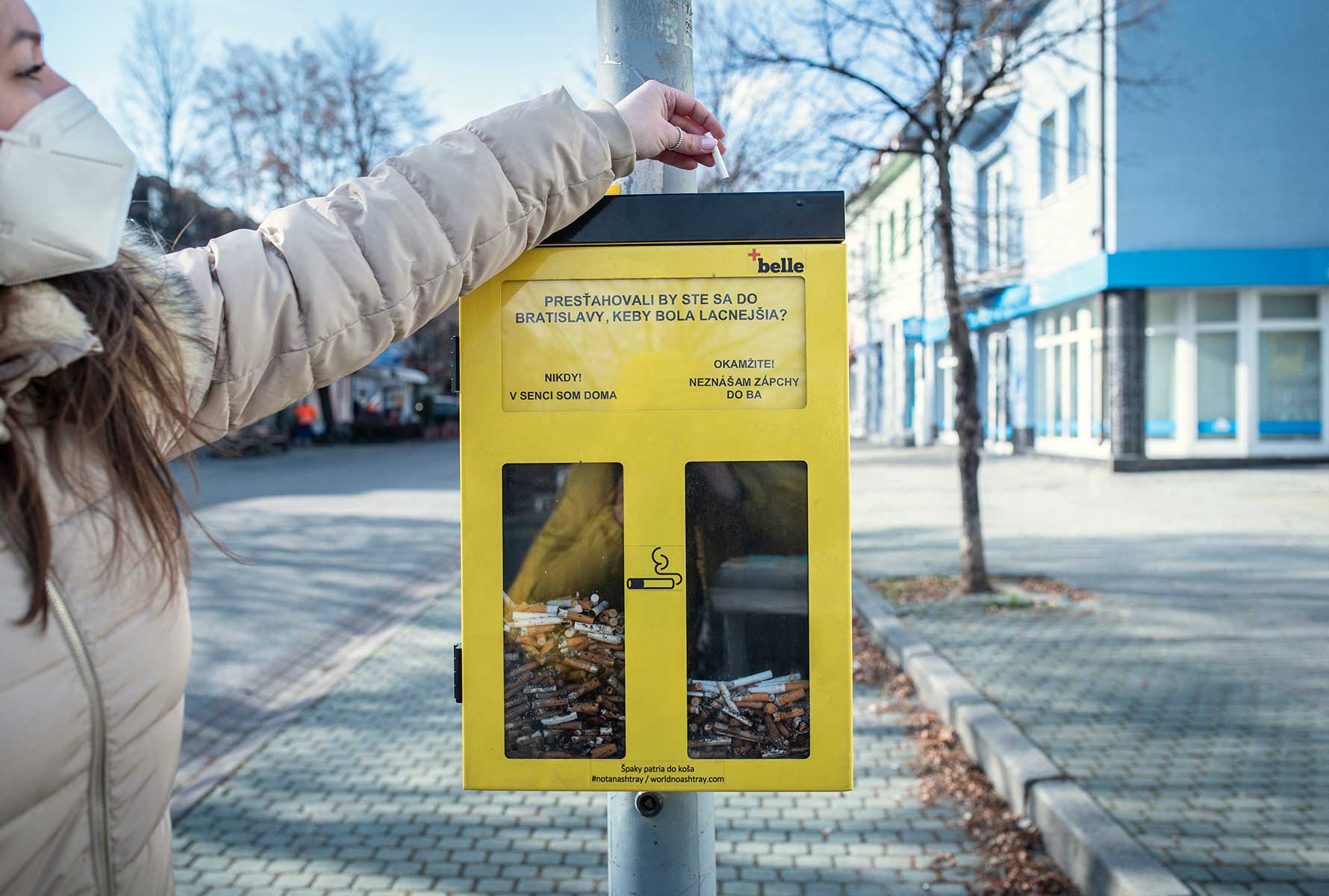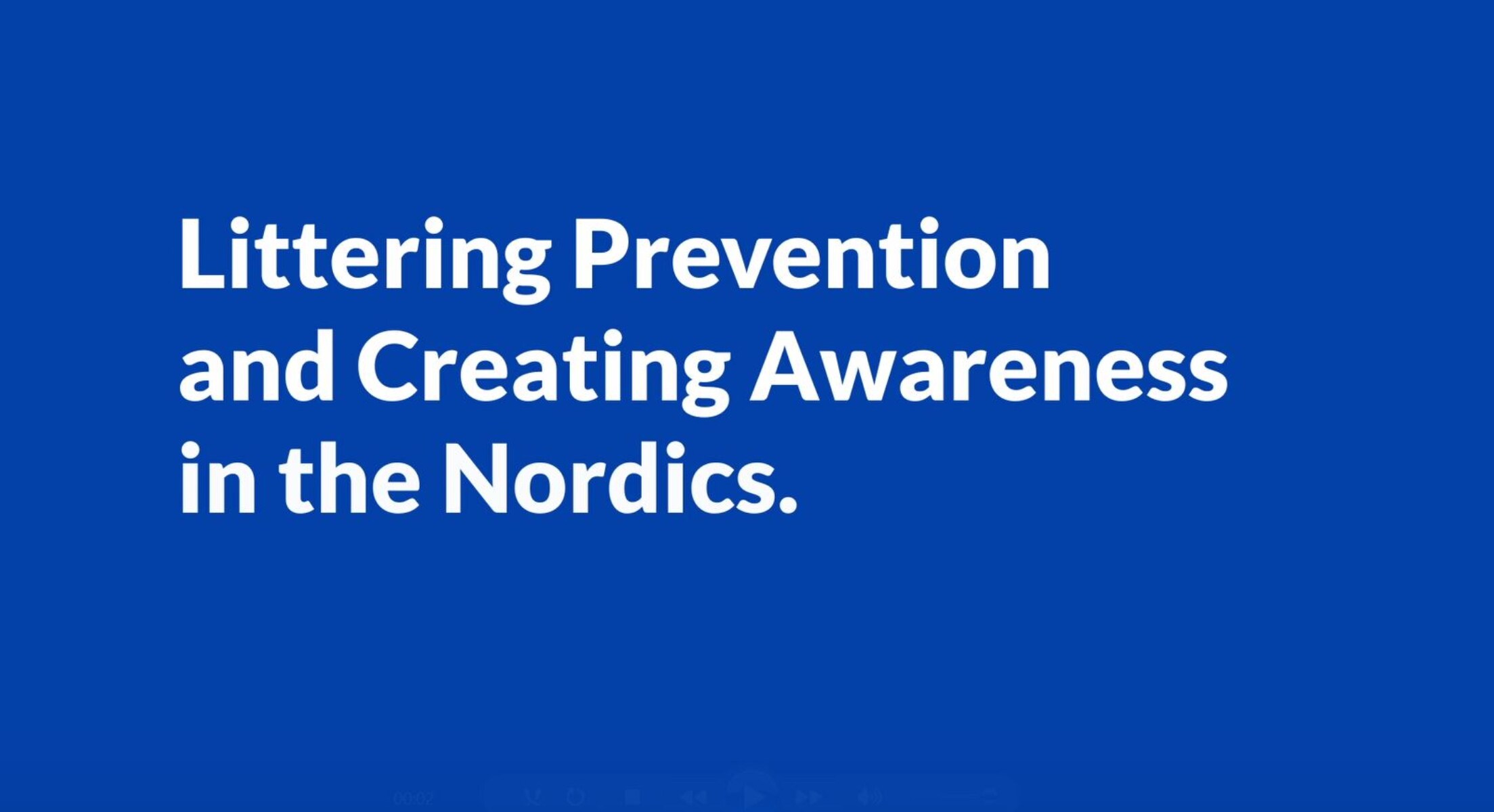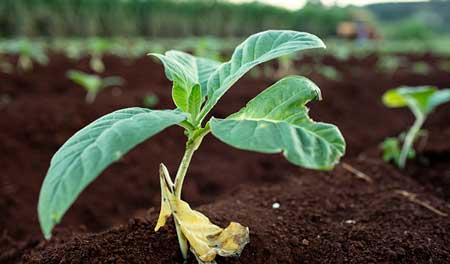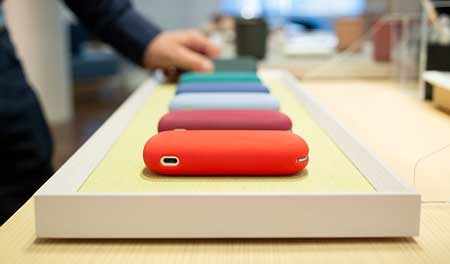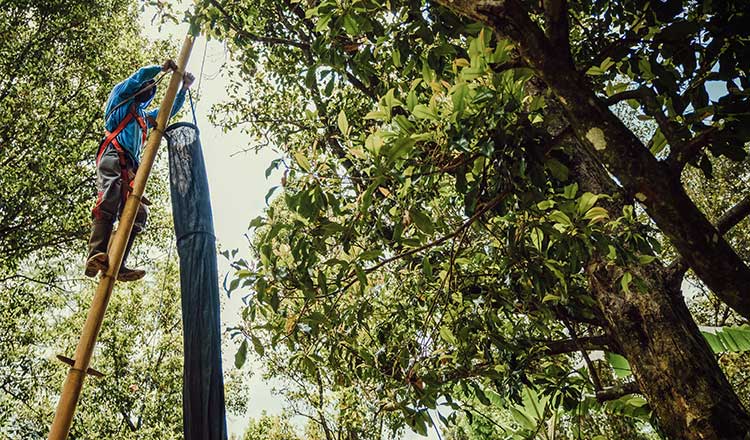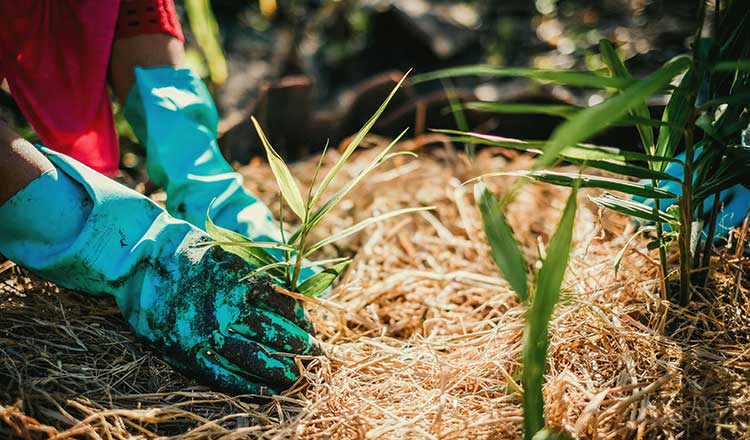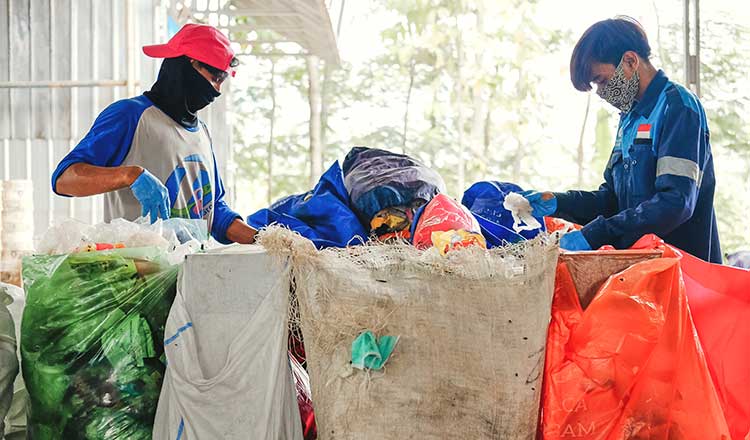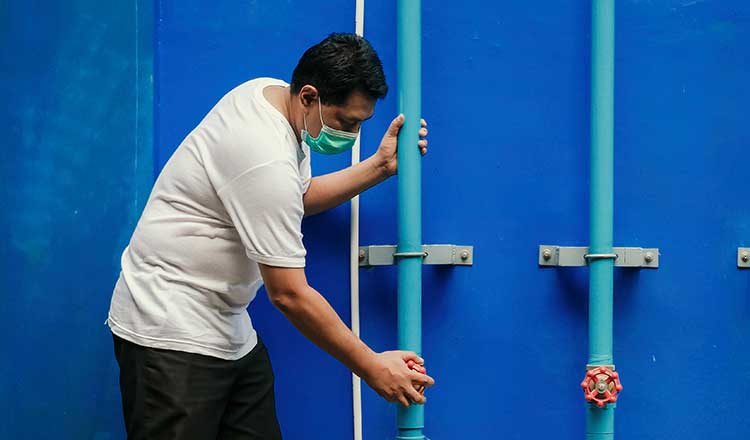Impact of COVID-19 on our activities in 2020
read moreReducing litter on the ground
In the EU, cigarette manufacturers will be required to participate in the collection and cleanup of cigarette butt litter. The Single-Use Plastics (SUP) Directive will mandate that producers participate in industry-wide Extended Producer Responsibility (EPR) schemes. EPR is an established governance scheme to collect waste for recycling or special treatment; it is now being used for the first time to address littering. We support the concept of an industry-wide EPR, provided such schemes are managed in a cost-efficient, proportionate, and targeted way which addresses the objective of reducing litter and changing consumers’ behavior.
The question on how to better enforce existing anti-littering regulations, or to introduce regulation seeking to address the problem of plastic litter, and more specifically cigarette butt litter, is being discussed in other countries such as Australia, Brazil, Canada, Costa Rica, and the U.S. Regulatory initiatives in this context primarily seek to raise the general public’s awareness on the litter problem and its environmental impacts, and at the same time propose that producers of products with plastic packaging, or containing plastics, assume responsibility for related litter cleaning cost.
In this chapter
- Impact of COVID-19
- Reducing litter on the ground
- Tailoring our efforts to local realities
- Encouraging behavior change
- Eco-design for better filters
- Next steps

Littering prevention - topic overview
read more
While our primary focus is on changing people’s behavior to encourage the proper disposal of cigarette butts, awareness raising will not prevent all littering. To meet our target of halving our plastic litter footprint by 2025, we need to continue exploring innovative solutions to reduce and collect plastic litter.
In this regard, we are exploring opportunities to participate in plastic litter collection projects that can reduce not only cigarette butt litter but possibly other unrecyclable plastic waste as well.
In 2019, we had joined the annual World Clean Up Day, the world’s largest litter cleanup event. Our affiliates’ participation in World Clean Up Day symbolizes the company´s commitment to address the issue of cigarette butt litter and is part of our public sensitization efforts. In 2020, given the generalized restrictions in place at the time of the event (September) we decided it was not appropriate for us to run a global mobilization campaign to take part in this event. Nonetheless, a few of our affiliates, where the pandemic-related restrictions were less severe, were able to participate. That was the case for our affiliate in Pakistan (PMPKL), where over 70 of our employees got together with partners from the local NGO NOWPDP, during Pakistan´s independence day, collecting over 700 kg of litter from the shoreline in Karachi.
Tailoring our efforts to local realities
Despite all the constraints arising from the COVID-19 pandemic, some affiliates were still able to deploy a comprehensive strategy involving trade partners, local NGOs, experts, and local authorities. These involved not only awareness-raising initiatives, but also the deployment and assessment of innovative cigarette butt disposal solutions, and even the trialing of alternative disposal methods.
Encouraging behavior change
In July 2020, we launched “Our World Is Not an Ashtray,” a web-based, corporate platform to educate, inspire, and engage the public on the issue of littering. Through this awareness campaign, we share facts and figures, testimonials, and calls to action.
Besides leveraging on our brands to encourage adult smokers to change behavior and switch to better alternatives, we also aim to promote post-consumption behaviors related to proper disposal. In that regard, in 2020 we continued the deployment of our Marlboro limited-edition “Leave No Trace” pack, which communicates anti-littering messages to adult smokers. Developed in 2019, the pack was sold in nine markets in 2020.
Our proprietary toolkit aims to support our markets be able to achieve that, adapting their efforts to local realities. We are committed to working in partnership with all relevant stakeholders to develop and share the most innovative approaches. By the end of 2020, 65 markets were using our global toolkit to develop localized strategies, with 33 of them having started implementation. The toolkit provides guidance on the development, monitoring, and evaluation of local programs, as well as best practices.
Eco-design for better filters
From an environmental perspective, the ideal scenario would be for our products not to result in any litter at all. In line with our Environmental Commitment and our litter reduction target, we must play our role in designing options that avoid or at least significantly reduce the amount and impact of our plastic litter, and develop filters with more natural, biodegradable, or recyclable materials. We are aware that material change itself does not solve the littering problem but helps to mitigate the impacts of residual littering of those users who do not respond to anti-littering campaigns.
For many years, we have been actively evaluating exploring and assessing the viability of alternative cigarette filter materials with a lower environmental impact than cellulose acetate (CA), an already renewable and partially biodegradable material. Any new material must satisfy the following criteria:
1. Consumer impact:
- Comparable filtration efficiency and consistent performance to CA filters
- Acceptable taste characteristics, as a product must be successful in the market to have the desired positive impact on the environment
2. Environmental impact:
- Significant reduction in total carbon footprint
- Substantial improvement in marine, aquatic, and soil biodegradation versus CA filters, and/or significant reduction in the plastic content of the filter
3. Commercially viable:
- Material need to be allowed to be utilized for purpose Conducive to industrialization at scale
We evaluate alternative filter materials via extensive chemical testing, machinability trials, biodegradation evaluations, and prototype testing among consumers.
Despite challenges faced during 2020 due to COVID-19 restrictions at our suppliers and facilities, we continued to explore and assess alternative filtering materials with improved biodegradability, including some plastic-free materials.
To date, while some tested materials have met one or more of the above criteria, we are yet to find an alternative to CA that satisfies those criteria. We will continue to explore options as new materials and processes become available.
With regard to our smoke-free products and our packaging, we seek to alleviate their environmental impacts through eco-design.
Next steps
In 2021, if conditions allow, we will ramp up antilittering campaigns across the countries in which we operate, in coordination with key stakeholders.
We remain committed to our target of halving the plastic litter from our products by 2025. In 2021, we will also establish our plastic litter baseline.
We plan to deploy our Marlboro limited-edition “Leave No Trace” pack in 14 additional markets in 2021 and we will continue to expand it into other brands and find solutions to increase the awareness of the issue across our adult smokers.
We will continue to explore and assess alternative filtering materials to cellulose acetate, considering both manufacturability and product performance.

Performance metrics
See the dataThis online content about our Integrated Report should be read in conjunction with PMI’s 2020 Integrated Report. The information and data presented here cover the 2020 calendar year or reflect status at December 31, 2020, worldwide, unless otherwise indicated. Where not specified, data come from PMI estimates. Please also refer to 'About this report' on page 3 of the 2020 Integrated Report for more information. Aspirational targets and goals do not constitute financial projections, and achievement of future results is subject to risks, uncertainties and inaccurate assumptions, as outlined in our forward-looking and cautionary statements on page 145. In the 2020 Integrated Report and in related communications, the terms “materiality,” “material,” and similar terms, when used in the context of economic, environmental, and social topics, are defined in the referenced sustainability standards and are not meant to correspond to the concept of materiality under the U.S. securities laws and/or disclosures required by the U.S. Securities and Exchange Commission.
